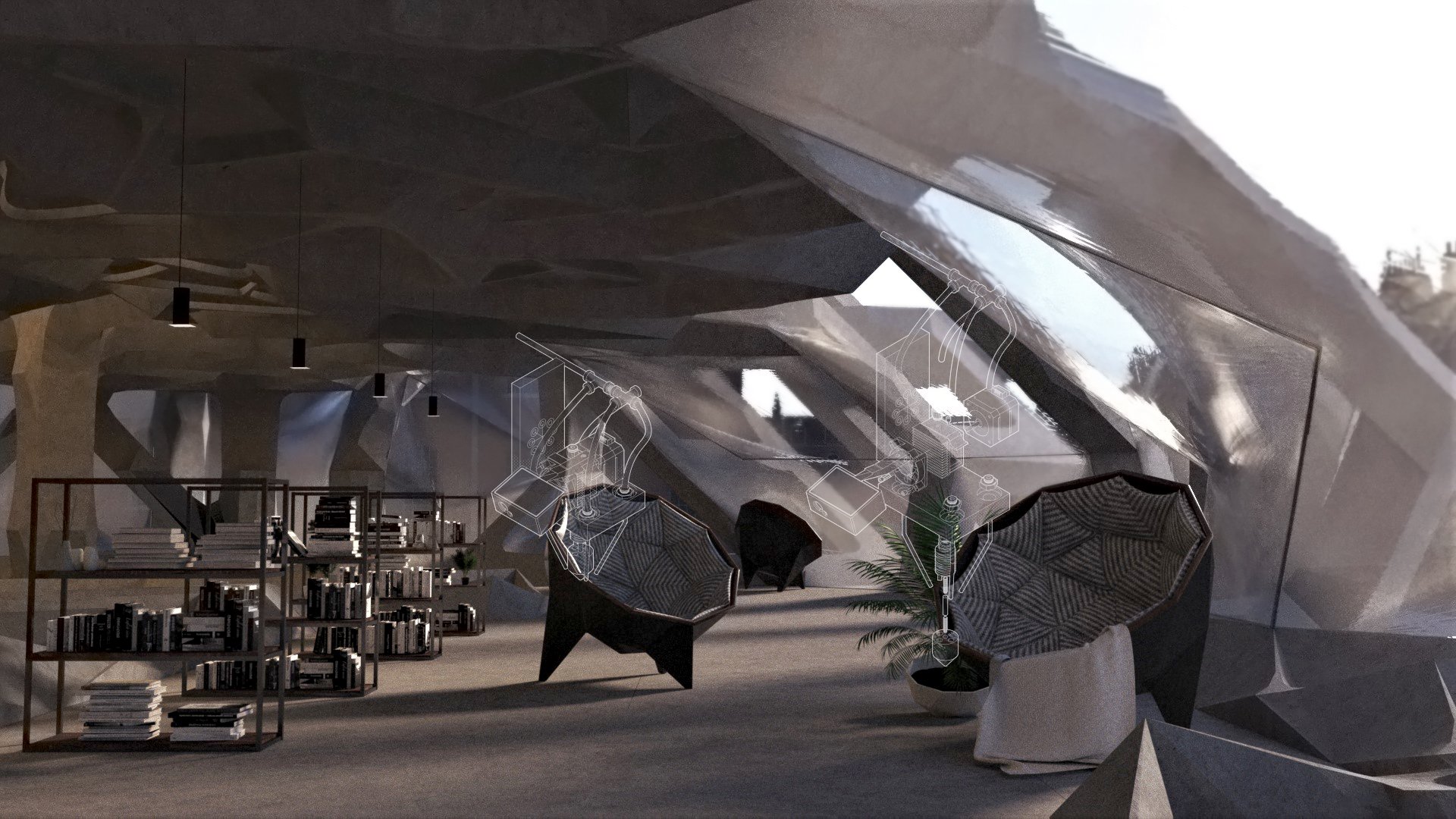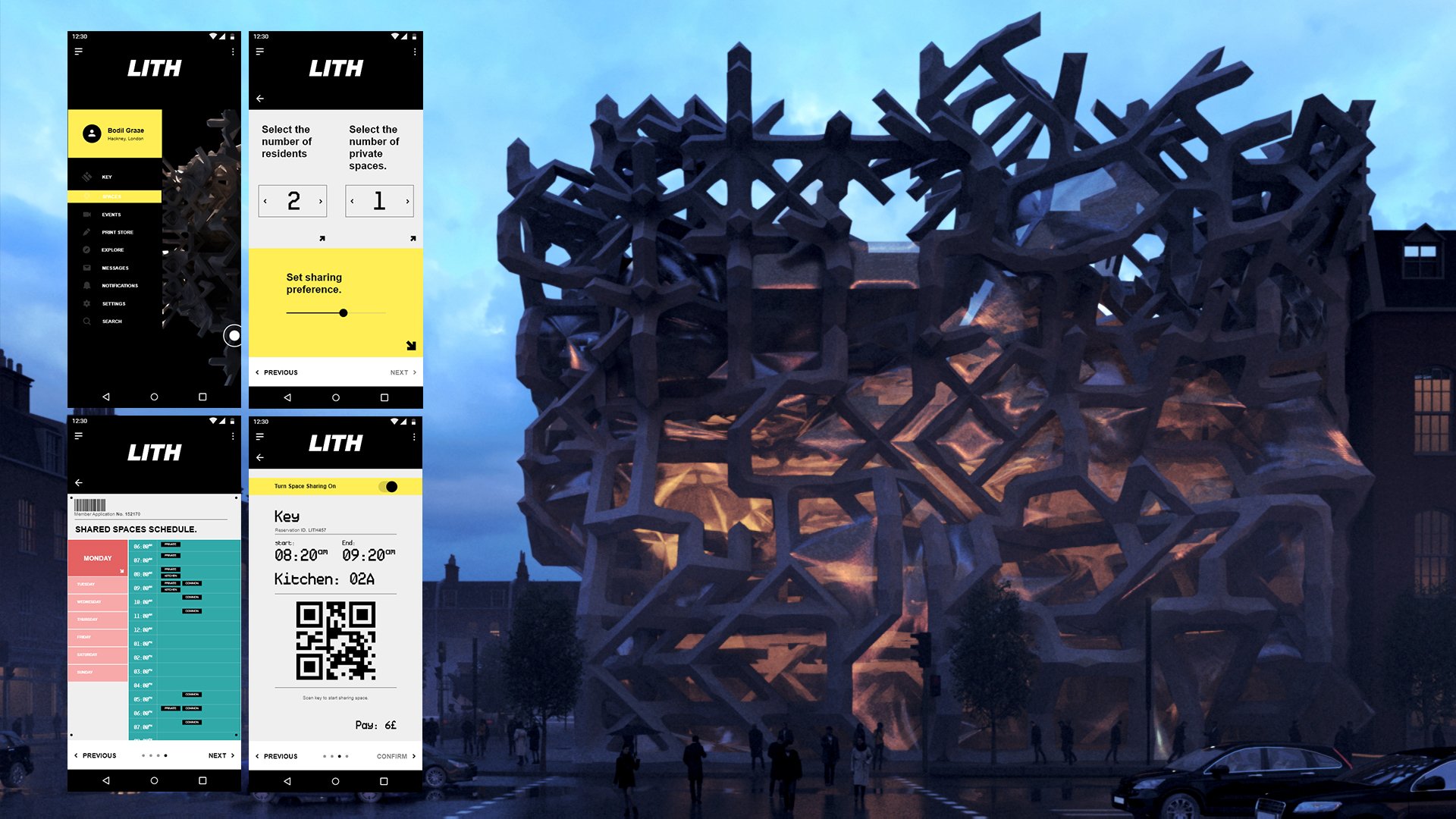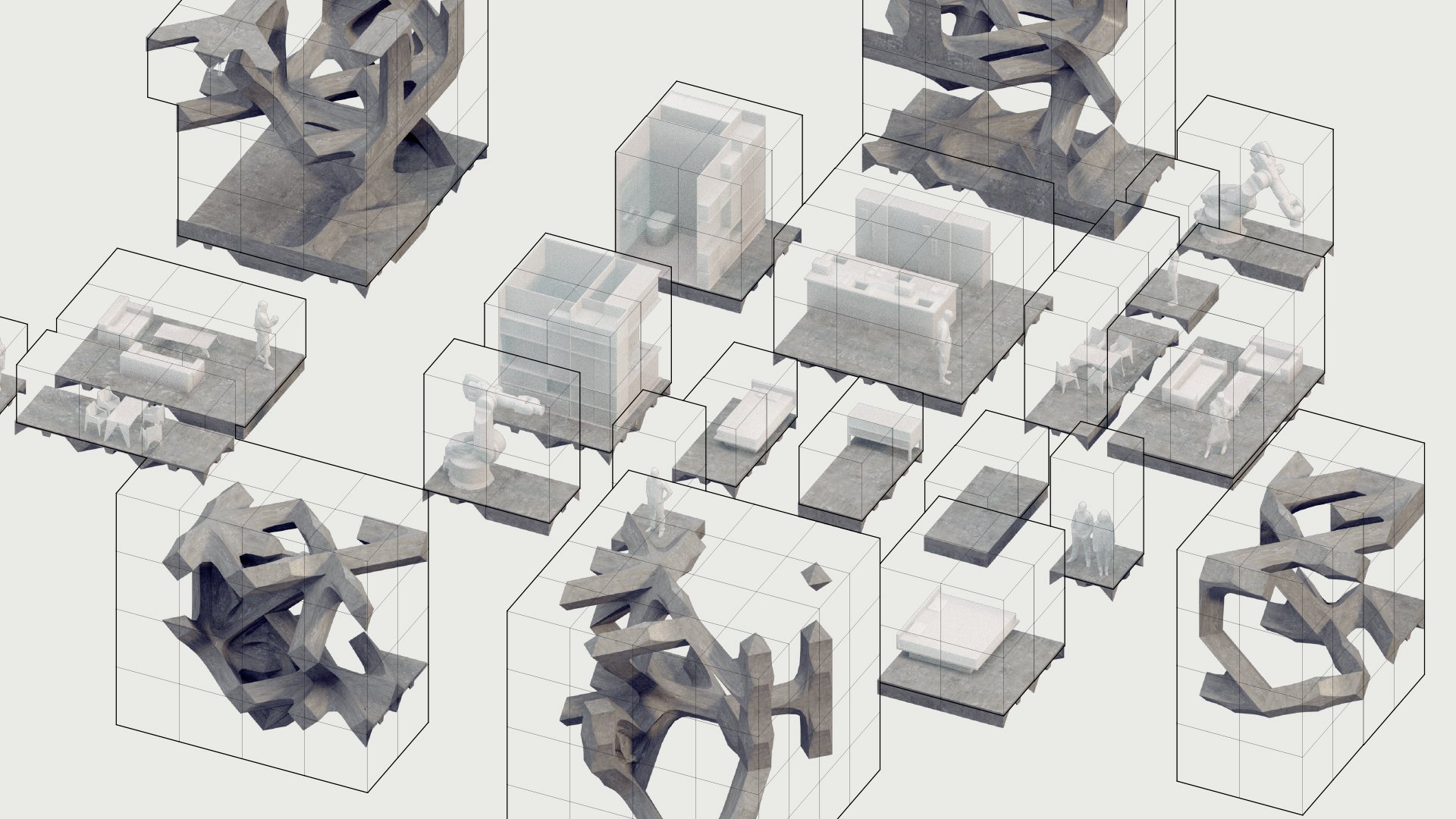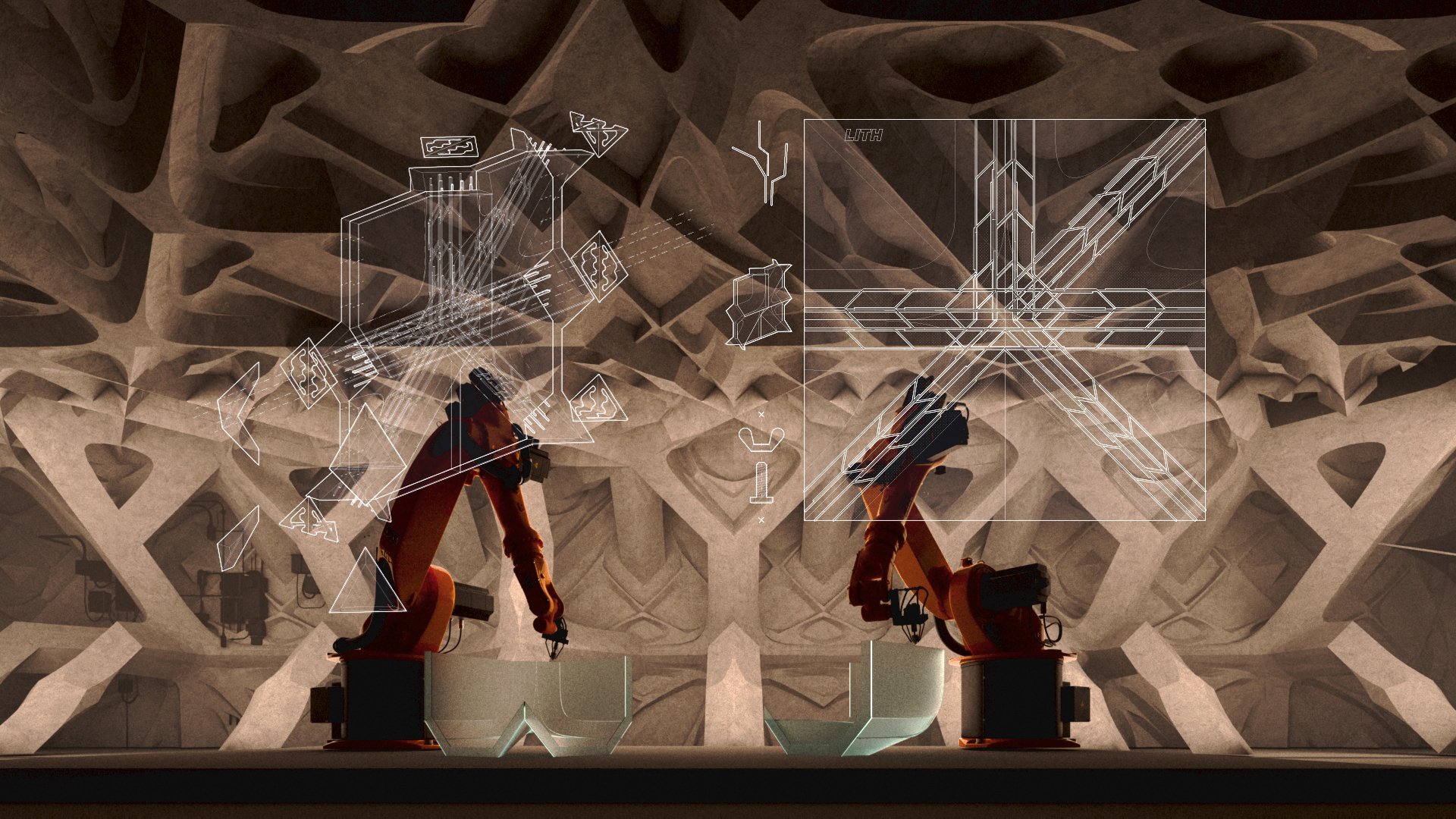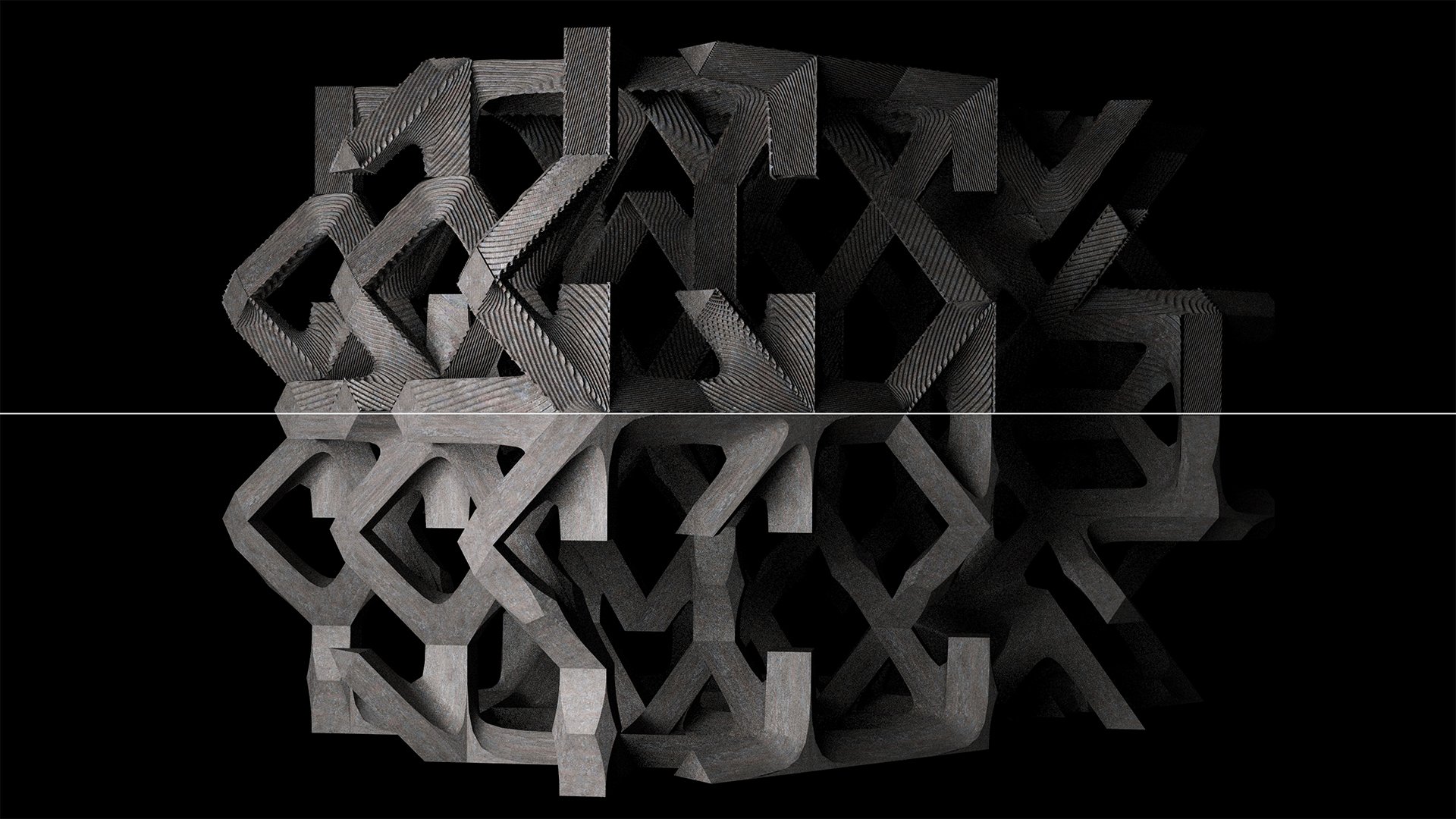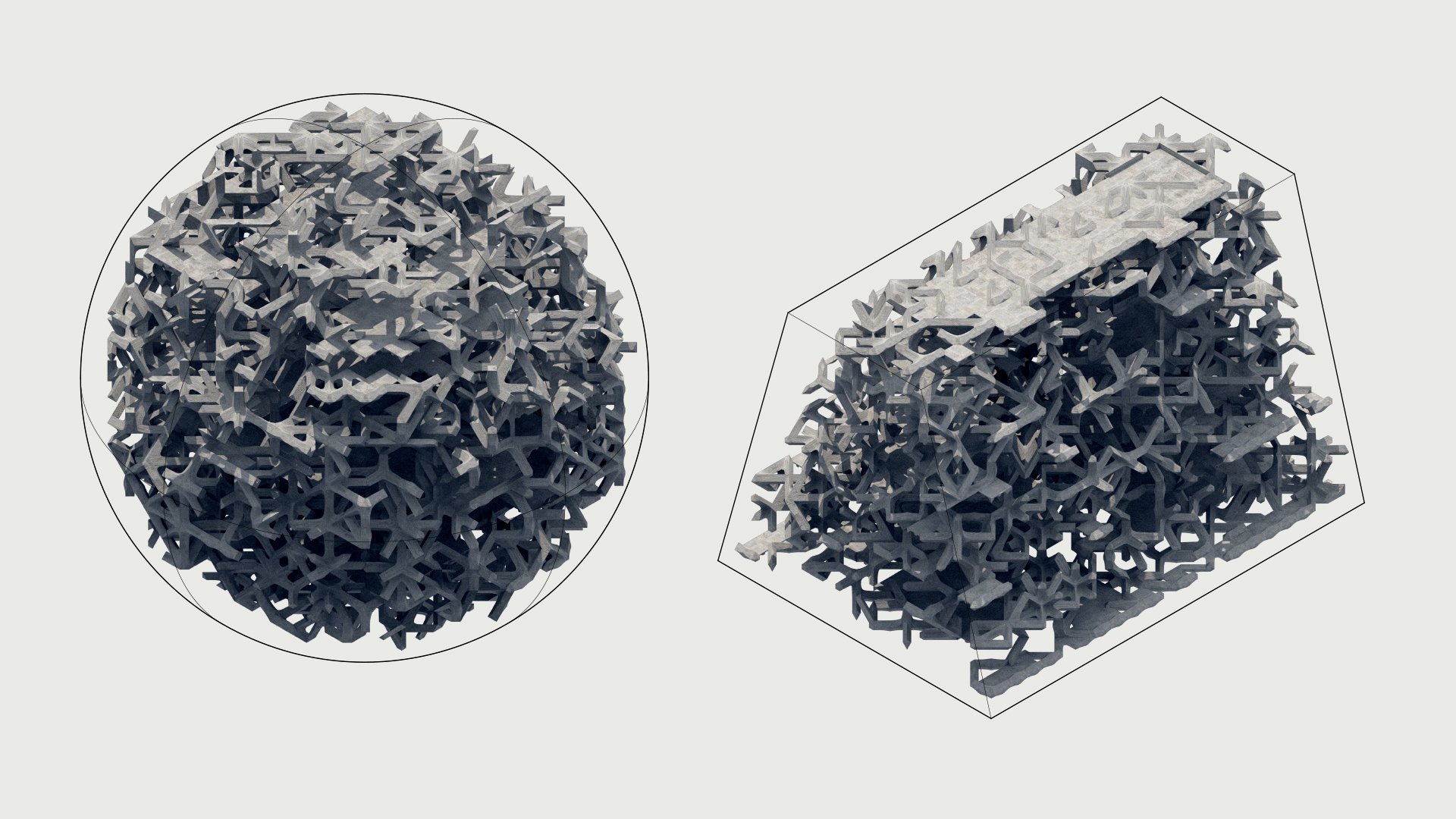
‘LITH’ by Mukul Gupta, Sinem Gorucu, Razan Jawad, Shuyan Yang
Masters of Architectural Design (2019-2020)
Bartlett school of Architecture, University College London, UK
Key supervisors: Gilles Retsin, Manuel Jiminez Garcia, Mollie Claypool
We believe that housing is a fundamental human right while ownership of land is not.
While the economic middle class is being forced out of city centers due to sky-rocketing housing prices, increasingly housing is viewed by the rich as a commodity to invest in, while occupying multi-room private castles. This is obviously problematic and aggravating the already terrible housing crisis. To avert this, we propose an occupation-only policy, where housing can only be owned if all designated living areas are being occupied by the owner. For all those who find unable to own housing, we propose a speculative automated universal profit-agnostic housing system. This housing system works on top of a user-algorithm interface to automate the design and construction process. The interface collects user data, anonymizing identity yet retaining individual characteristics for customization. The inherent design logic/ Algorithm should also be available to the larger design community as an open-source code to develop and utilize anonymous User data.
This publicly-owned automated living platform for space sharing called LITH is enabled by a 3D printing farm, it is aimed towards decommodification of gentrified neighborhoods and to provide affordable long-term homes for at-risk members of the community, and to provide a platform to artists and artisans being displaced due to gentrification. LITH is an amalgamation of multiple design systems stacked on top of each other including, platforms for generation of space, platforms for management of space sharing, platforms aiding construction, and production systems automating construction.
Due to the rise of sharing culture, an increasingly larger part of the population is now comfortable sharing spaces and services. Spaces in Lith are divided along a couple of spectrums, we looked at the services and spaces that people are comfortable sharing. We question the ideas of how much space we require to live and need to feel ownership of against how much of the space in a generic house can actually be shared.
LITH re-imagines the conventional functional distribution of space. Instead of space divided along the lines of function, we imagine spaces as ambivalent and inherently flexible and dependent upon the user to give it meaning and function. It is then divided along the lines of ownership, access, and share-ability. The spaces are vowelized and meaning that parts of shared and private space are measured in Voxel-units. A single bed occupies two voxels, a shared kitchen occupies 9. A generative algorithm then iteratively evolves the spatial configuration of these voxel spaces to optimize occupation for its residents. For example, while conventional space distribution would render spaces such as Living rooms, studio spaces, and workshops as separate spaces, LITH identifies this as wasteful since the use time of these spaces seldom overlap and these spaces are instead treated as a single Shared space.
We concede that users are perhaps more interested in reduced costs and convenience over fostering social relations. It is also true though that access to Higher quality goods and services is desirable over ownership. For economic viability, conservation of space, convenience, and general improvement of quality of life, we propose a pay-as-you-use system, where sharing amenities reduce the cost of amenities being used. The economic benefits of sharing these services provide an incentive for people to share common spaces hence reducing the chances of any individual being unable to access a given amenity at any time. By letting the users customize their spaces the system also allows co-living as a long-term comfortable solution to housing. The Lith platform constantly engages with the occupants as it is the underlying system that manages collective collaboration within the co-live.
Lith, utilizes an automated construction system, to print, assemble and cast architectural structures. The automated LITH printing farm works tirelessly around the clock for the production of serialized 3d printed formworks which can be incrementally cast to produce an intentional community, where spaces are designed, shared, and managed via a platform. Each of this 3D printed form-work once printed can be utilized in 24 different orientations. Every individual part in the larger generated aggregation is serialized, ID’d and tagged with a scannable code, Enabling the assembly process to re-use formwork from the layers below when the cast material is cured. This enables LITH to generate extreme complexity in its algorithmic generation while limiting the amount of waste generated and material required. Along the same line of material conservation, the printed form-works are self-supporting and require no additional scaffolding, furthermore, they can be utilized as partition walls and dividers after being decommissioned as formworks. Parts are engineered to assemble along multiple axes of rotation and as mirror images. The parts assemble and coalesce into non-recurrent complex configurations creating a long-term co-live community customized to the needs of individual occupants.
MArch Architectural Design / The Bartlett / 2019-2020
I am a computational designer and architect, focused on generative methodologies and automating architectural processes.
housing, platform, automation, 3d printing, robotic architecture, luxury communism, decommodification, application, computational architecture, aggregation, discrete, algorithmic futures.
